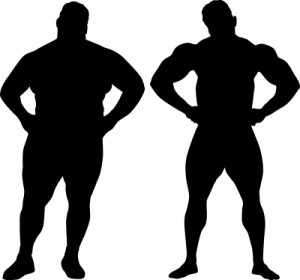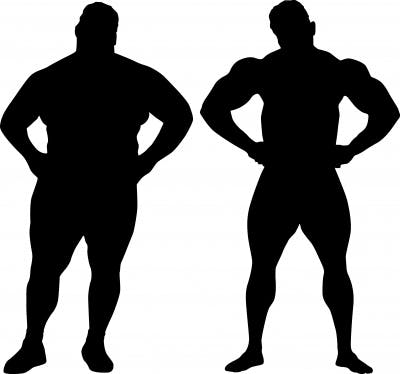 It may not be fair; it’s certainly not nice, and it could even be illegal, but for all that, chunkiness could be keeping your superstar sendout from getting the job.
It may not be fair; it’s certainly not nice, and it could even be illegal, but for all that, chunkiness could be keeping your superstar sendout from getting the job.
That’s hardly a new revelation; studies linking obesity and even merely being overweight to fewer promotions and lower pay have circulated for years. More recently, a study involving human resource professionals (your clients) demonstrated that even this group, which you might expect would know better, is biased against chubbiness.
Conducted by a group of German researchers, they showed pictures of people without reference to their occupation to more than 100 HR professionals who make hiring decisions. The results were striking:
Participants underestimated the occupational prestige of obese individuals and overestimated it for normal-weight individuals. Obese people were more often disqualified from being hired and less often nominated for a supervisory position, while non-ethnic normal-weight individuals were favored. Stigmatization was most pronounced in obese females.
By no means is this the only study showing that overweight job seekers my be rejected simply based on their excess poundage. In an article in Obesity, published just this past year, researchers Rebecca M. Puhl and Chelsea A. Heue noted,
One study (N = 2,838) found that overweight respondents were 12 times more likely, obese respondents were 37 times more likely, and severely obese respondents were 100 times more likely than normal-weight respondents to report employment discrimination.
Another study in 2004 that looked at a large sample of individuals over many years found, “a persistent obesity wage penalty over the first two decades of their careers.”
The dilemma for recruiters on contingency — and for a retained search — is what to do about qualified and even highly qualified candidates who carry more than just a few extra pounds? Unless there’s a medical cause for the candidate’s weight, in most parts of the U.S. it is not illegal to reject a job seeker simply because of their girth. (Weight discrimination is prohibited in Michigan, Washington D.C., and in a few cities, including San Francisco.)
The Equal Employment Opportunity Commission warns:
Height and weight requirements tend to disproportionately limit the employment opportunities of some protected groups and unless the employer can demonstrate how the need is related to the job, it may be viewed as illegal under federal law. A number of states and localities have laws specifically prohibiting discrimination on the basis of height and weight unless based on actual job requirements. Therefore, unless job-related, inquiries about height and weight should be avoided.
This has mostly played out in cases where men were cut more slack than women. Some of the more famous examples have been flight attendants and wait staff. Where men and women are treated equally when it comes to weight, and there is no disparate impact on a protected class, then a hiring manager is free to reject a candidate purely because of weight.
The opposite, evidently, is equally true. Women have been fired for being too attractive and, at least in Iowa where the firing actually made it to trial, the state’s Supreme Court ruled 7-0 in favor of the dentist employer. Attractive women have also been discriminated against in hiring and promotions.
However, the problem of the overweight is more prevalent, particularly as Americans grow heavier. With 36% of the U.S. population over 20 classified as obese, and another third considered overweight, chances are that the majority of your candidates are carrying extra weight. The third that are simply overweight don’t present the same placement challenge as those who are obese, yet they, too can be passed by employers with health plans that take into account the fitness of their workers.
The ethics point to sending out your absolutely best candidate regardless of their weight. The economics pretty clearly say that your obese candidate has much less of a chance of landing the job and earning your fee.
And what do you tell your talented, but fat candidates? Do you show them the studies, tell them how their weight significantly reduces their chances of getting a job against even somewhat less talented competitors?
As the statistics demonstrate, if you haven’t yet been confronted with this situation, you will be. If you have, what did you do?
